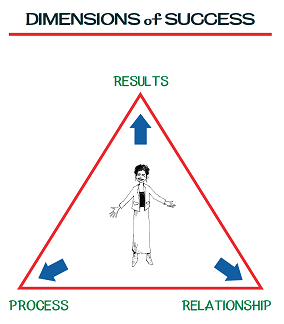Strong-Ties Weak-Ties
October 12, 2010 3 Comments
Part One of a Response to Malcolm’s Missive
“The revolution will not be tweeted” – No sh*t Sherlock! But let me start with what I did like about Malcolm Gladwell’s annoyingly limited article. Revolution can only happen in the real world, it is neither virtual nor abstract. Revolution can only be measured as actual, successful and good when it has a real impact on increasing people’s capacity – people’s power – to determine their own destiny. A true revolutionary act, the sort of revolutionary act that re-defines power relations, will always be a risky endeavor – power most often has to be taken, for it rarely ever surrenders itself.
Gladwell nails it when he proposes that the sort of high-risk activity that has true revolutionary potential can only be sustained by strong-ties, relationships of deep trust, among the individuals engaged in those activities. Revolution is seeded in community, its success depends on people who know each other’s names, people who know each other’s passions and trust each other’s purpose – people who have seen each other cry and fail and have fought with one another in order to make up again.
I celebrate Malcolm’s missive not only because this part of it is true, but because it justifies my work here at IISC. Our pursuit of social change is defined by the equilateral triangle of “Results-Process-Relationship.” Our first engagement with a client often includes an early struggle as participants wonder if there is a point to lengthening a meeting for sake of deepening relationships. “We are all so busy, can’t we just get to the real work? I’m here to work! Why am I being asked to reveal so much of myself?”
This resistance is endemic in a society that has devalued the human gift for relationship. The industrial paradigm has left us so focused on “efficiency,” that we have cut from ourselves the most important sustaining factor for revolutionary potential – a true connection to one another at the most human of levels, the space of the heart, the place where our personal purpose comes together with our shared purpose – the place where we align with the evolutionary thrust. Strong-ties are formed in spaces that magnify our freedom by making us co-creators of the destiny we seek.
If we accept this perspective, and consider the nature of our relationships with the people that we work with, then perhaps we can see the harried, touch-n-go, hyper-transactional, over-emailed nature of our current connections as the weakness that must be addressed. From this perspective the weak-ties of the twittersphere are nothing but a reflection of the weak ties in our offline world. Creating the right conditions for authentic relationships to grow and evolve, holding the space, facilitating the process, formulating a better and truly sustainable container for the pursuit of our shared purpose – that is what I see as my work. But let’s get back to Malcolm…
3 Comments
Great point about the importance of relationships and the counter-productiveness of sacrificing relationships for “efficiency”. We really must get past this bureaucratic worldview.
I think the distinction between strong and weak ties, and their roles in such things as revolution, deserve a more nuanced approach. For example, it seems to me that there is actually a development process with stages that can be articulated. As activities develop, the strength of ties becomes less important as people sense an evolving community that is growing and drawing them out of their fears.
Another example: I think that strong ties are particularly important for a specific type of revolution, where fear is a particularly important factor. But is this a necessary quality of “revolution”? This question is part and parcel of the question about your “theory of change”…a lot of big revolutionary changes happen incrementally, rather than in the “dam-bursting” way associated with Egypt. In incremental change, weaker ties such as simply spreading knowledge can be very powerful. You can see some of my own thoughts about Egypt, Network Leadership and Transformation here: http://bit.ly/dXqjN6